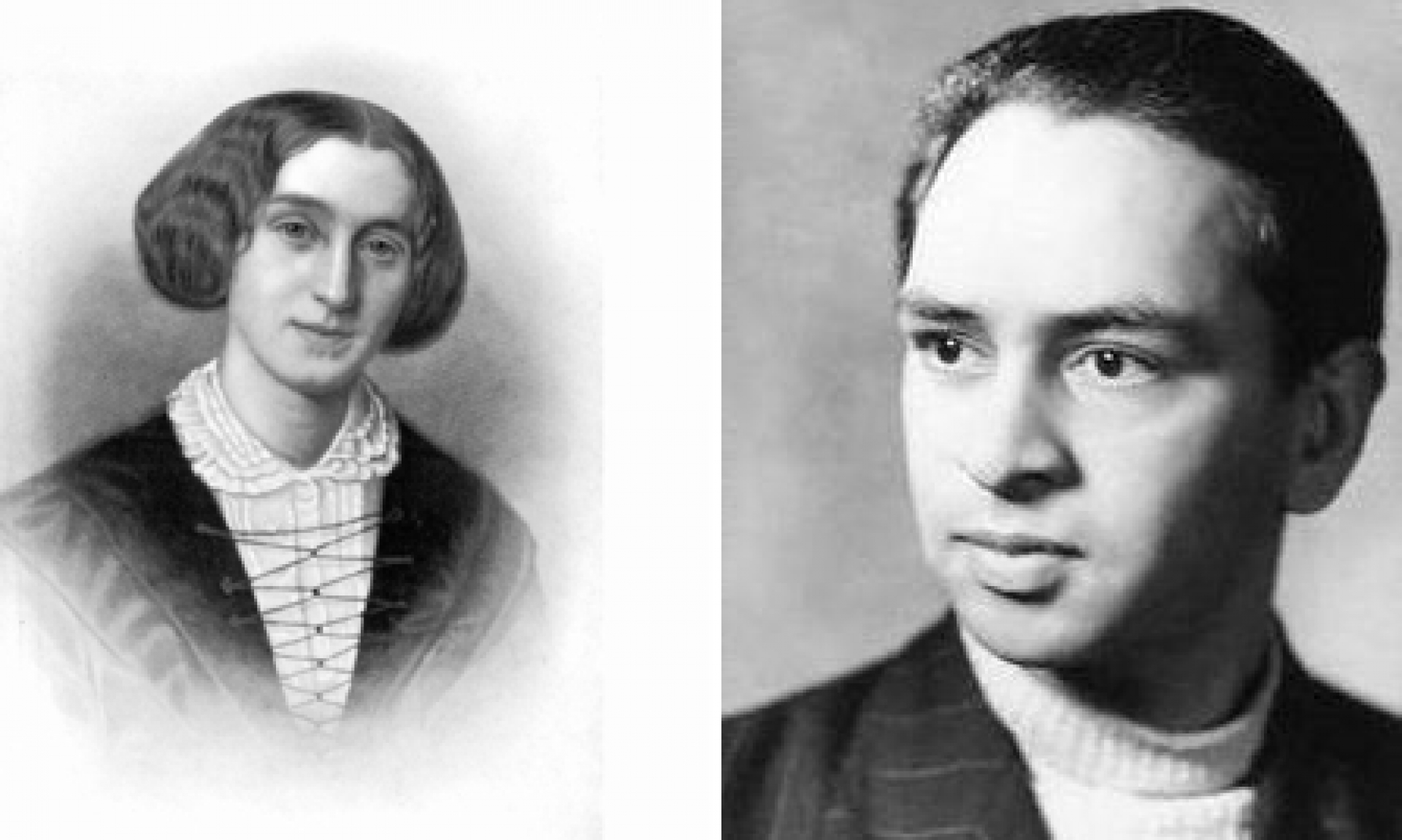All Appalachian Regional Library locations will be closed on Monday, February 2nd due to the winter weather.
Wilkes County Blog

Two for One Literary Birthday Book Reviews
Monday, 06 December 2021 15:49November 22 came and went without my literary birthday recommendation. Blame it on the beginning of the holiday rush . . . Since this month’s chosen read celebrates an author born on December 12, this article will recommend two-in-one. I’ll start with the belated and end with the upcoming. I am also planning my ‘to-read list’ for the new year. This is always a hard chore since I want to read everything I hear about, and time never allows for that. I will begin hosting monthly in-person Literary Celebrations at the Roaring River Winery (in Traphill) beginning in January. Look for more information about this in our library news column, or call 336.838.2818 x 241
SO looking back on November 22, I want to pay special homage to a favorite author of mine, George Eliot. She was born in Warwickshire, England during the year 1819. If you haven’t heard of her, the name may have confused you when I revealed HER gender using pronouns. Her official name at birth was Mary Anne Evans, and of course when she legally married, later in life her last name changed to Cross. She chose George Eliot as a ‘pen name’ to avoid pre-judgment on her published books and writings. Early in the 18th century, most noteworthy authors were men, and women authors weren’t taken as seriously. Another personal reason for keeping a low publishing profile was to prevent scrutiny on her relationship with a married man.
George Eliot was the author of five books included on the International Must Read List: 1001 Books You Must Read Before You Die. These suggestions are: Adam Bede, Daniel Deronda, Middlemarch, The Mill on the Floss, and Silas Marner. Just like in her own life and daily struggles, Eliot’s characters are not perfect and they demonstrate the real difficulties of living a moral life. Readers will become absorbed in the challenges that are faced when trying to live for a higher purpose. Of course, Eliot’s novels show readers a glimpse of life in a historical setting, but it is the real dilemmas and inner character thoughts that make these stories such page-turners. Eliot has an incredibly deep insight for what motivates human behavior, particularly bad behavior.
Last month I read Silas Marner, Eliot’s shortest novel. Surprisingly it unfolds in a way that brings a spirit of glad tidings and good will, just in time for Christmas. In quick summary, Silas is a weaver who makes the finest cloth around. He has faced trouble in his life, after being falsely accused of stealing money from the church, and then the girl he has his eye on marries someone else. This drives him to another town, where he knows no one, and he begins hoarding all his earnings. He doesn’t trust anyone and becomes a lonely miser. Weaving to make and hoard money is what he lives for each and every day. Then one day he discovers an infant outside his door. The child’s mother is dead a short distance away. Without hesitation, he adopts the child and names her Eppie after his deceased mother. The transformation of this miserable, antisocial recluse reminded me of the Grinch. Later in the book Silas is given an option of wealth in exchange for his adopted daughter and the theme of what real wealth really is becomes evident. Financial wealth becomes insignificant in comparison to parental love. This novel will you touch you so much that your heart will ‘grow three times’ by the time you finish it.
Mulk Raj Anand was born on December 12, 1905, and is known as India’s equivalent to Charles Dickens. His first book Untouchable was chosen for December’s literary read. Through the years Anand’s work reflected the lives of the lower caste of India’s society and provided readers with insight into the impoverished, cruel, and hard times they had.
To understand things better, I did a bit of background research on the caste system of India. What this means is the level of society one was born into and each group’s assigned occupations. This system of social grouping began in the late 1800s and lasted until the 1920s. Later 1947, when India achieved independence from Britain they enacted many affirmative action policies to protect and uplift historically marginalized groups. The lowest group of the caste system is called the ‘untouchable.’ Anand’s first novel was published in 1835 and revolves around one day in the life of Bakha, a toilet cleaner, and of course this means that Bakha is an ‘untouchable.’ His job is to clean the streets and keep the public latrines clean. He has to call out his status, “untouchable,” as he makes his way through town, so others will stay clear.
The story takes off when Bakha accidently bumps into a member of a higher caste when tasked with sweeping the town square. He then receives extreme public humiliation, for it. Bakha knows he is beneath them, the other townspeople, but he has pride and dignity inside. “They think I am dirt because I clean their dirt.”
After a series of troubling events, Bakha hears that Mahatma Ghandi is preparing to make a public speech in town and he is able to attend where he hears some good news. Soon there will be a flush system installed and this will eliminate the need for untouchables. In fact, Ghandi shared that he did not believe in the caste system, which was treated sacred by the Hindu religion. Ghandi, being the greatest religious reformer and father of the Indian nation taught that the evil of untouchability should be rooted out and the practice removed from society. “Touch does not defile. It is rather an expression of love. Removal of untouchability means love for the whole world. It is an operational aspect of non-violence. It will remove a gross injustice and lead to social cohesion.”
Mulk Raj Anand’s literary career beginnings were established with an essay he wrote in response to a tragedy in his family. His aunt was excommunicated by the family for sharing a meal with a Muslim woman, and the depression resulting from this caused her to take her own life. The strict rules of India’s caste system made a big impression on him growing up. Much of his writings reveal the unfairness and inconsistencies of that system. Anand was actively involved with the Indian Independence Movement as a propaganda writer during the 1930s – 40s. He became friends with George Orwell during WWII while working as a scriptwriter for the BBC in London. E.M. Forester, author of A Passage to India, wrote praises for Anand with an introductory preface to the novel Untouchable; “Avoiding rhetoric and circumlocution, it has gone straight to the heart of its subject and purified it.”
Other noteworthy authors who share a birthday with George Eliot include: Charles de Gaulle, André Gide, George Gissing, William Kotzwinkle, and Victor Pelevin.
Diana Athill, British literary editor is also recognized for sharing a birthday with Mulk Raj Anand
